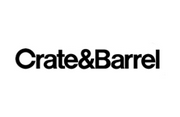
If you've implemented an SEO strategy in 2022 and are wondering whether it worked, the best thing you can do is to follow the data.
If you’ve implemented an SEO strategy in 2022 and are wondering whether it worked, the best thing you can do is to follow the data. By looking at your site’s performance in the SERPs (Search Engine Result Pages) over time, you can determine what aspects of your SEO strategy may be helping – or holding back – your visibility on search engine platforms.
When examining your SEO results, think about why certain elements are working and not others and how you can adjust accordingly. For example, are you optimizing for the right keywords? Have any recent changes been made to your website’s structure? What about link building campaigns? Identify potential areas for improvement that could help increase your ranking in the SERPs.
With some patience and dedication, you should be able to see whether or not your SEO efforts have paid off by the end of 2022. Remember, though – SEO is an ongoing process, and there will always be opportunities for further optimization. Keeping an eye on trends and experimenting with and tracking different approaches; can help ensure your website stays visible and relevant for years to come!
Tracking organic traffic over time is a great way to see if your SEO team is achieving goals.
Tracking organic traffic over time is a great way to gauge the performance of your SEO team. By analyzing website visits and search engine query results, you can see which strategies are working – or not working – for your site. Comparing various metrics such as total visits, average time on site, bounce rate, and conversion rates will help inform adjustments that can be made to ensure you’re getting the most bang for your SEO buck. Additionally, running tests such as A/B splits and tracking referral links can give you valuable insights into how people are finding and consuming your content. With careful monitoring of organic traffic over time, you’ll be able to ensure that your SEO team is delivering expected results – or quickly course-correct if it’s not.
SERP visibility is an excellent metric for tracking the success of your SEO efforts.
It provides a comprehensive view of how often your website appears in the search engine results when users search for specific keywords. By regularly monitoring this metric, you can quickly determine if there are any changes in your ranking position over time and make necessary adjustments to your SEO strategy accordingly. It’s also important to look at other factors, such as organic traffic, click-through rates, and average time on page, as these all provide valuable insights into how well your content is being received. With careful analysis, SERP visibility can be an excellent way to track improvements in search engine results and ensure that you’re doing everything possible to stay ahead of the competition in the rankings.
Backlinks are a good measure of how well your content is performing.
The number of backlinks pointing to your website is a great way to measure the quality of your content and how well it resonates with other websites and online users. The more reputable, authoritative sites that link to your content, the higher regard search engines will hold it. Additionally, through an effective linking campaign, you can build relationships with other websites that may send referrals and help increase overall website visibility. This can profoundly affect how high up the search engine rankings your site appears, as well as help establish you as an authority within your industry. Ultimately, by monitoring the number of backlinks you receive, you can gain insight into whether your content is successful and make adjustments accordingly if needed.
Does longer content rank better on Google? Yes, should all your content be long? No.
Generally speaking, if you provide useful, informative, or entertaining content that meets readers’ needs, it can be beneficial to extend articles. However, there’s no need to artificially make your content longer if it adds no value to the reader. Content should be long enough that it answers the query and provides in-depth insights without being overly verbose and irrelevant. It’s always best practice to ensure your content is well-written, engaging, relevant, and valuable for users regardless of length.
Domain authority continues to be a key metric in determining your chances to rank higher in the SERPs.
Domain authority is a key metric used to measure a website’s ability to rank in the SERPs (Search Engine Results Pages). It considers the quantity and quality of links pointing to a website that help search engine algorithms understand how authoritative and relevant it is for specific queries. A higher domain authority score indicates that your website is more likely to appear higher in search engine results, increasing the chances of gaining more organic traffic. It’s essential to keep an eye on your domain authority as it can fluctuate over time, which can affect your online visibility.
Domain authority was created by MOZ and is a legit metric for valuing your content and ranking potential.
Domain authority (DA) is a metric created by Moz to measure the strength of a website’s ability to rank in the search engine result pages (SERPs). It considers the quality and quantity of links that point to a website which helps search engine algorithms understand how authoritative and relevant it is for a particular query. A higher domain authority score indicates that your website has a better chance of receiving more organic search traffic and appearing higher up in SERPs, thereby increasing visibility and clicks. This makes DA a vital metric to focus on, as it can affect your online presence and determine the success of your content.
Why conversions and revenue are the ultimate metrics in determining your SEO success?
Conversions and revenue are the ultimate metrics in determining SEO success because they measure the effectiveness of your search engine optimization efforts. While ranking highly in the SERPs is essential, it’s only step one in SEO success. The goal of SEO is to drive more organic traffic to your website, which can then be converted into paying customers and generate revenue for your business. Therefore, when evaluating SEO performance, it’s essential to look at conversions (e.g., purchases or sign-ups) and total revenue generated from those conversions, as that will ultimately determine an SEO campaign’s success.
Keyword research is essential when setting up your SEO and paid marketing plans for success.
Keyword research is a critical component of creating an effective SEO and paid marketing plan because it helps you find out what keyword phrases target audiences use when searching for your business’s products or services. By understanding which keywords are being used and how often, you can prioritize the ones that will yield the best results for your website and create content focused on the high-cost keywords that may otherwise be a budget buster for your paid campaigns. In addition, keyword research allows you to optimize your pay-per-click (PPC) campaigns by selecting keywords with higher search volumes and lower competition, helping you get more relevant traffic at a lower cost. Ultimately, well-researched keywords are essential in driving better-quality traffic to your website, resulting in improved conversions and increased revenue.
n this blog, we discussed why conversions and revenue are the ultimate metrics for SEO success and the importance of conducting keyword research when creating SEO and paid marketing plans. In addition, we discussed how ranking highly in SERPs is just one step toward SEO success. The goal is to drive organic traffic to a website, which can then be converted into paying customers, generating revenue for a business. Additionally, keywords are essential for optimizing PPC campaigns, driving better quality traffic to a website leading to improved conversions and increased revenue.
In summary, keyword research is essential for successful SEO and paid marketing plans. By understanding which keywords are used, how often, and CPC for keywords, businesses can create content that addresses their target audience and optimize their PPC campaigns to drive better traffic to their website. Combined with other SEO efforts, this can result in improved conversions and increased revenue. So let’s get your business on track to make 2023 your best year!












